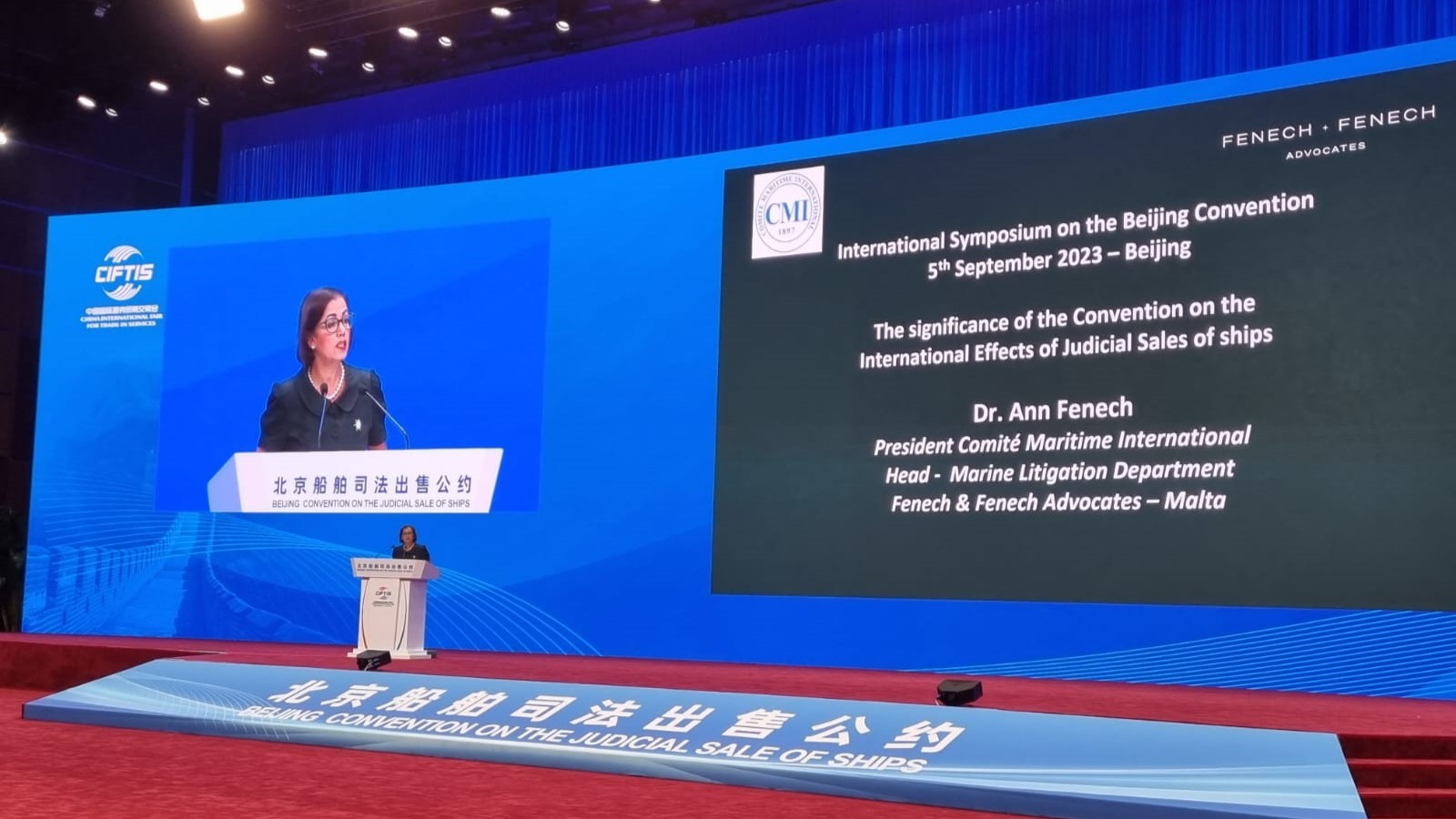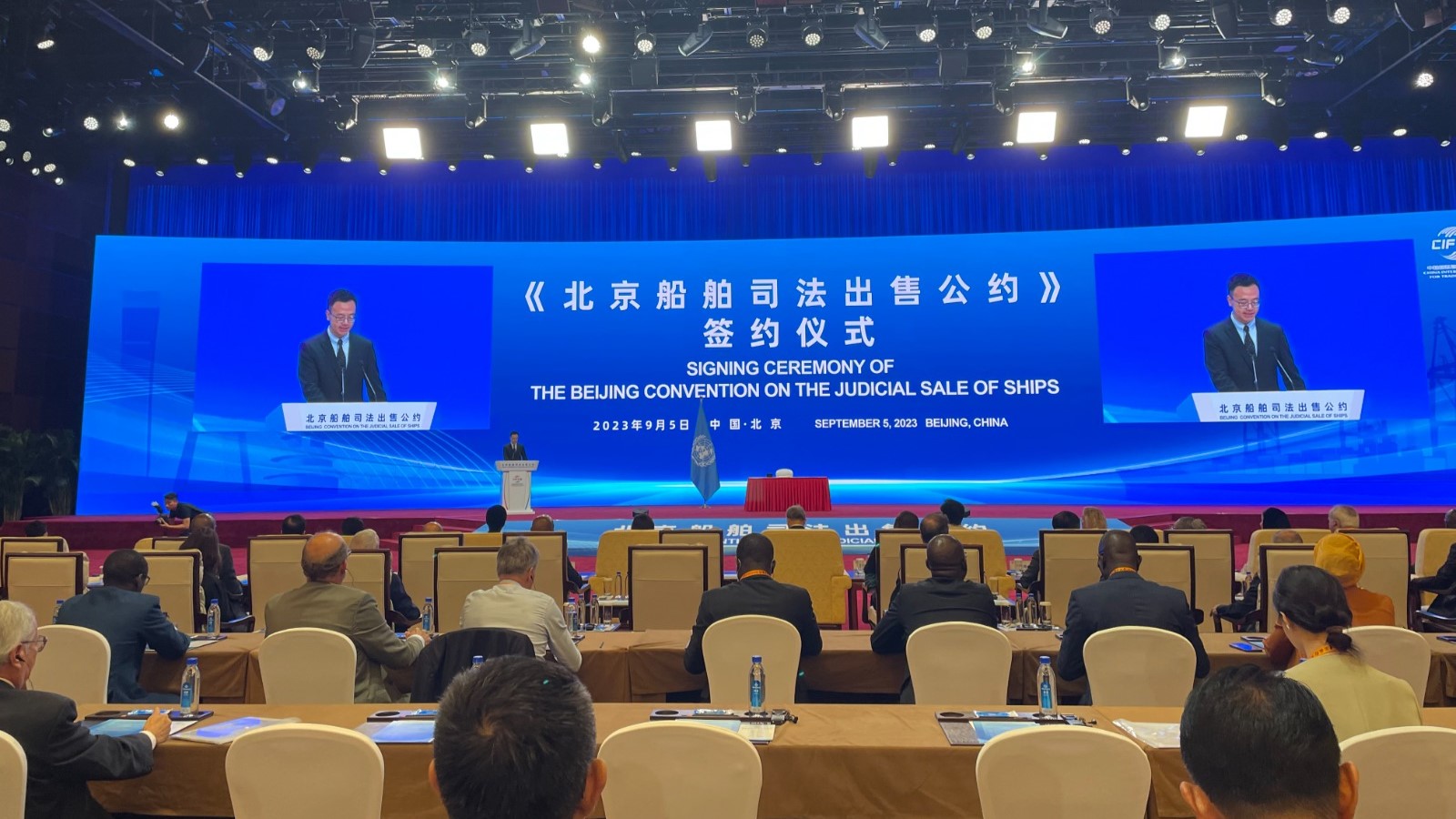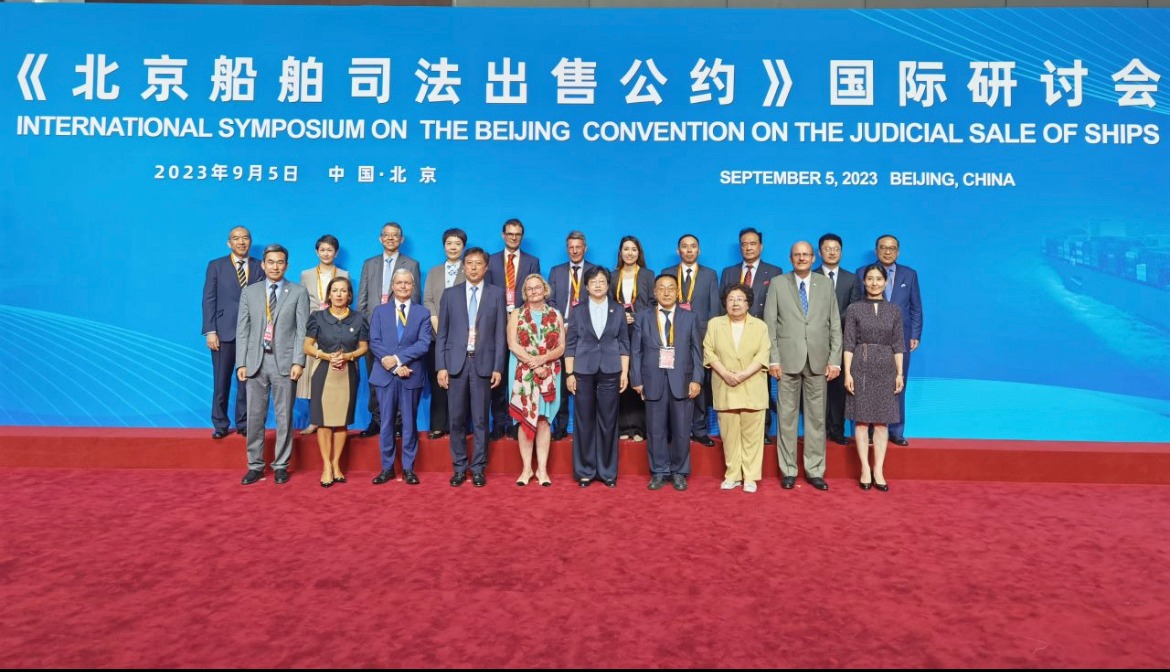Comite Maritime International (CMI) President Ann Fenech has lauded the new United Nations (UN) Convention on the International Effects of Judicial Sales of Ships, stating that it will provide Malta’s maritime administration clarity on the status of Maltese-registered ships.
The convention was signed in Beijing, China on 5th September after the General Assembly of the UN adopted it last December. It seeks to resolve cases when a purchaser of a ship in a judicial sale by auction, who buys the vessel free and unencumbered of the vessel’s previous debts, eventually see the re-arrest of their new ship by the vessel’s old creditors. It was signed by China, Burkina Faso, Comoros, El Salvador, Grenada, Hondouras, São Tomé and Príncipe, Liberia, Switzerland, Syria, Singapore, Kiribati, Saudi Arabia, Sierra Leone, and Senegal.
As CMI President, Dr Fenech was present for the ceremony and addressed the symposium following the signing of the agreement. She is also a Partner at Fenech & Fenech Advocates, heading its Marine Litigation department.
Speaking to WhosWho.mt, she explained that the ratification of this convention by as many state parties as possible will bring “stability and certainty in a very special area of international trade”. She added that this is ultimately the reason why it was taken up by the UN Commission on International Trade Law (UNCITRAL) in 2018.
“It is important to remember that when a vessel is sold in a judicial sale it is usually a distressed vessel because the owner would have been unable to pay their debts. Judicial sales are thus held, and the vessels are sold free and unencumbered in the hands of the successful purchaser,” she explained.

CMI President Ann Fenech addressing the symposium
Dr Fenech remarked that this is vital as no purchaser would be interested in buying a ship for a good price unless it is in fact free and unencumbered. Once the transaction is completed, the money is paid into court and the vessel’s old creditors are paid out of the proceeds, leaving them with “no right to pursue the ship in the hands of the new purchasers”.
While this is the case for most jurisdictions, there have been cases where the vessel’s old creditors re-arrest the vessel in the hands of the new purchasers for old debts. “This causes chaos for the new owner who would have paid good money, which they usually would have obtained from a financing bank, and so the bank is hence also most concerned about this,” she said. This also disrupts charters and delays cargoes.
“All in all, it costs all those innocent parties a great deal of time and money to get out of this situation and it is a great interruption to international trade. 90 per cent of world trade is carried by sea so when this sort of thing happens it causes huge disruption, extensive financial burdens, diminishes the faith purchasers have in judicial sales, and financiers become reluctant to finance vessels purchased through the process,” she highlighted.
Additionally, she pointed out that there have been instances when registrars of ships have not recognised the change in ownership following judicial sales, prompting “even more confusion”.
Shifting to the local perspective, Dr Fenech said that Malta is a “very popular jurisdiction” where there are several judicial sales of ships sold free and unencumbered. “We have an excellent international reputation in this regard and the Court process works very well,” she added.
“Therefore, it is vital that these judicial sales are given proper effect and are recognised all over the world,” she said, before pointing out that the as Malta is Europe’s largest ship registry, the convention is “very important” for the nation.

The UN Convention on the International Effects of Judicial Sales of Ships' signing ceremony
The convention provides Malta’s maritime administration with “clarity” whenever Maltese registered vessels are sold in judicial sales across different parts of the world, Dr Fenech affirmed.
“The signing ceremony came too early to enable EU Member States to sign the convention. However, the EU Commission is very much in favour of this convention and has already approved a policy to be adopted by the European Council which will clear the way for EU Member States to ratify the convention,” she said.
She noted that Malta is “eagerly waiting” for this moment, with different Ministries already signalling their approval of the ratification, while a number of EU Member States, such as Spain and Belgium, have expressed “similar intentions”.
Providing some background on the convention, she said that it had been adopted after the Commission at UNCITRAL approved the draft which had originally been drafted by CMI under the stewardship of Henry Li. When CMI drafts an international convention, it then needs to find an international legislative body which will take on the project and turn it into a convention. This was the case for UNCITRAL after a colloquium was held in Malta in 2018, during which time Dr Fenech was appointed CMI Coordinator for the project.
During that period, Dr Fenech and the rest of the team were “heavily involved” in five sessions which took place at the UN in New York and Vienna, “assisting other delegations to understand the importance and relevance of the convention” and to find acceptable solutions to points raised by other delegations with a view to finding solutions.

The UN Convention on the International Effects of Judicial Sales of Ships' signing ceremony
Asked about the experience at the signing ceremony, Dr Fenech said that it was a “magnificent” event that was held at the China National Convention Centre in Beijing, and it was attended by hundreds of delegates.
As President of CMI, it was a “very special moment” for both her and the organisation, as it has “continued to underline the importance of CMI as a primary drafter of international maritime conventions”.
“The unification of international maritime law is the very raison d’etre of CMI and the signing of this convention gives me as President of CMI a tremendous amount of satisfaction,” she concluded.
Dr Fenech has extensive experience in disputes ranging from ship building contracts to immediate casualty response acting for the most important international maritime operators. She is also vastly experienced in judicial sales having conducted various ones through auctions and court approved private sales.
